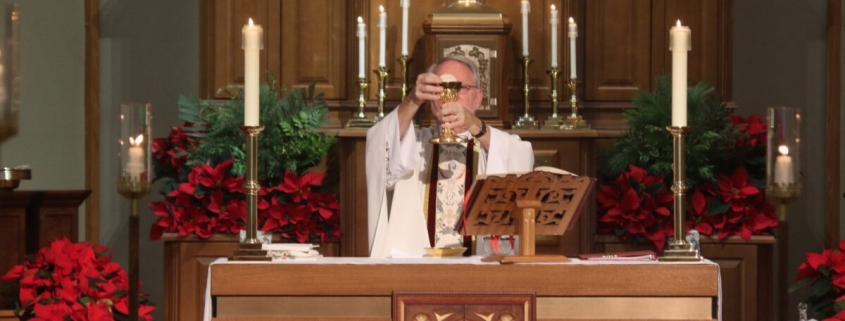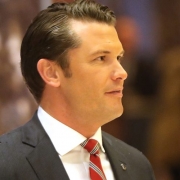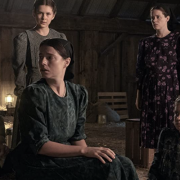Beth Moore is not the first Baptist to journey to the Anglican Church
This article originally appeared on January 5, 2022 at Baptist News Global.
When Beth Moore left the Southern Baptist Convention in 2021 and soon after was seen in a photo serving Communion at an Anglican church, the social media outrage became a reminder that few people seem to rile up Southern Baptist and conservative evangelical TheoBros as much as Beth Moore.
At the Truth Matters Conference in 2019, which was a gathering to celebrate John MacArthur’s five decades of ministry, Todd Friel asked MacArthur to play a word association game with the two words “Beth Moore.” To which, MacArthur famously replied, “Go home.”
MacArthur’s henchman Phil Johnson added, “The word that comes to my mind is ‘narcissistic.’”
Then MacArthur jumped back in to say: “Just because you have the skill to sell jewelry on the TV sales channel doesn’t mean you should be preaching. … The church is caving in to women preachers. … Women are not allowed to preach.”
“Few people seem to rile up Southern Baptist and conservative evangelical TheoBros as much as Beth Moore.”
Attacked for being a Baptist and then for not being a Baptist
Over the next two years, many within conservative evangelicalism followed MacArthur’s lead and continued piling on.
In a recent episode of The Holy Post podcast, Phil Vischer reflected: “There was this movement in 2020 of people saying, ‘We have to be open to more perspectives. We have to hear more voices. We can’t always assume that we the majority — in this case white men primarily — are the ones who know what’s right about everything. … I describe 2021 as ‘The Empire Strikes Back.’ … There was such as strong pushback on people like Beth Moore and Russell Moore, who now neither are in the Southern Baptist Convention.”
Russell Moore was then head of the SBC Ethics and Religious Liberty Commission but resigned last summer rather than continue to fight the far-right flank of the SBC who thought he was a liberal. He now works for Christianity Today.
Regarding Beth Moore, Vischer said, “She was attacked for being a Southern Baptist but not quite towing the party line from the most conservative parts of the Southern Baptist Convention. Now she’s being attacked for not being a Southern Baptist.”
Vischer was referencing the fact that Beth Moore decided to leave the SBC and join St. Timothy’s Anglican Church, a congregation within the theologically conservative Anglican Church in North America.

Split image captured for social media and shared by critics of Beth Moore becoming an Anglican.
When Reformation Charlotte recently discovered that Beth Moore was wearing a robe and serving Communion in her new church, they called her an apostate, posted screenshots of the service and of the church’s volunteer schedule, and reminded the world of their prediction that “it would only be a matter of time before Beth Moore becomes full-on gay-affirming.”
But Moore’s journey from Baptist churches to Anglican churches is not unique. In fact, it is a journey many evangelicals take, including myself. There are many examples of Southern Baptist pastors, scholars and laity alike finding their way to the Anglican Church.
Of course, I am no longer a member of an Anglican church because my spiritual journey kept going beyond where the Anglicans were willing to go. And I cannot speak for Beth Moore’s journey, especially since I am in very different theological spaces today than where she is. But I can share some insights as to why the Anglican Church attracted my Baptist-formed journey, and how the Anglican Church opened me up to life beyond it.
Learning the language with independent fundamental Baptists
I grew up in the very conservative world of the independent fundamental Baptists. We primarily were concerned with the holiness of God, which we defined as separateness and took very seriously as a call to be “in the world, but not of the world.”
We applied that separation mindset by creating detailed lists of rules about hair style, dress style, music style, and virtually every area of life one could imagine.
We married our attachment to rules to a desire to be seen as balanced. For example, we were not KJV only. But we only used the KJV. This supposedly moderate position allowed us to feel safe by only using the King James Version of the Bible without being categorized amongst the more extreme KJV-only factions of independent fundamental Baptists.
“While there was much to fear in this world, it was the world that introduced me to the language of Christianity.”
While there was much to fear in this world, it was the world that introduced me to the language of Christianity. It was there that I first learned the stories of the Bible, heard about Jesus and was introduced to life in community. This language would become the framework through which I would spend my life processing ultimate reality.
Still, these rules, set within the context of fearing the holiness and immanent judgment of God, cultivated deep wounds that eventually would lead me out of this subculture.
Cultivating my curiosity with Free Will Baptists
Most independent Baptists believe in the doctrine of eternal security, which teaches that once a person says and means the sinner’s prayer, they are saved forever. One unique part of my story within the world of independent fundamental Baptists, however, was that my family believed Christians could lose their salvation.










Leave a Reply
Want to join the discussion?Feel free to contribute!